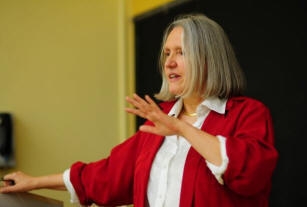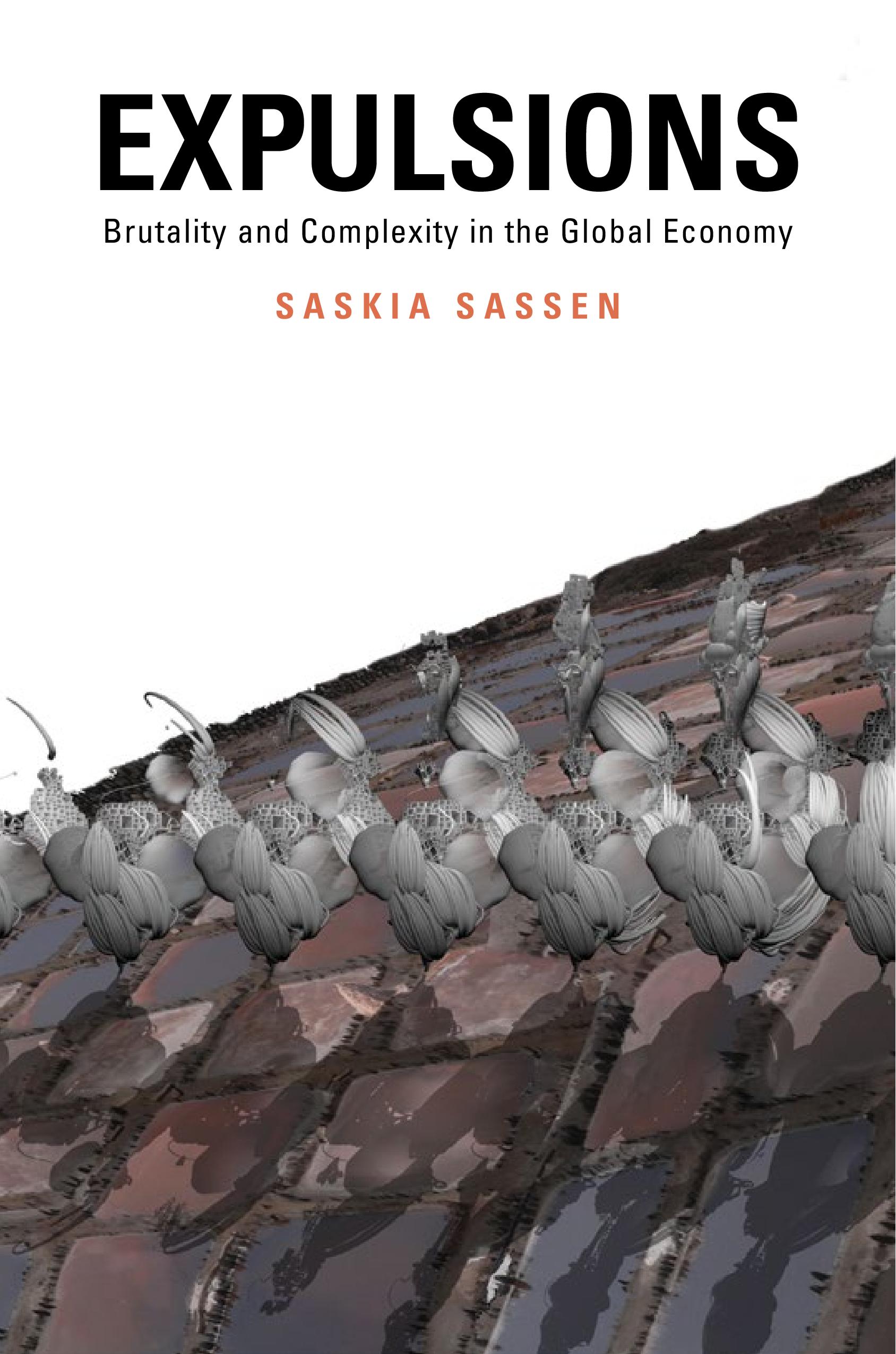SASKIA SASSEN
Robert S. Lynd Professor of Sociology, Columbia University
Committee on Global Thought, Columbia University
Prof. Sassen's two classes Fall 2017
Global Urbanism Syllabus, Fall 2017.
"Age of Extraction: An Interview With Saskia Sassen", King's Review, November 2017.
"The City: A Collective Good?", The Brown Journal of World Affairs, Spring/Summer 2017.
"Embedded borderings: making new geographies of centrality", Territory, Politics, Governance, March 2017.
"Predatory Formations Dressed in Wall Street Suits and Algorithmic Math", Science, Technology & Society, February 2017.
“Saskia Sassen: Interviewed by Shamus Khan”, Public Culture, 2016.
"Economic Cleansing: Failure Dressed in Fine Clothes", social research, Fall 2016.
Expulsions: Brutality and Complexity in the Global Economy: Harvard University Press, Spring 2016.
"A Massive Loss of Habitat: New Drivers for Migration", 2016. "In Contrast #33 The Global City", New England Public Radio November 2018.
"Welcome to a New Kind of War: the Rise of Endless Urban Conflict", The Guardian, January 30 2018.
"Deep Inside the Global City", The Guardian January 2018.
"Can Cities Help Us Hack Formal Power Systems?", The Architect's Newspaper, August 2017.
"Digitization And Work: Potentials and Challenges in Low-Wage Labor Markets", Open Society.
Sassen on "What’s the Greatest Risk Cities Face?", Politico Magazine, July/August 2017.
Interview at the Moscow Urban Forum: "Extraction & inaction? Ft. Dutch-American sociologist Saskia Sassen?", RT, July 2017.
"'One of the most culturally diverse cities in the UK': Saskia Sassen on Manchester", City Metric, June 2017.
"Home economics: Book Review on Jane Jacobs Biographies", The Times Literary Supplement, March 2017.
“I think we need more cities: Saskia Sassen”, The Hindu, February 2017.
“Saskia Sassen en La Historia es Nuestra”, Cooperativa, January 2017.
"Why The Paris Attacks May Signal A Shift In Extremist Violence", Huffington Post, January 2017.
"Top-Down, Bottom-Up Urban Design" by Elizabeth Greenspan, The New Yorker, October 2016.
"Die Reichen möchten in der Stadt nicht belästigt warden (The Rich do not want to be bothered in the city)", Süddeutsche Zeitung, June 2016.
"How Jane Jacobs changed the way we look at cities", The Guardian, May 2016.
Forward to Beyond Gated Communities, edited by Samer Bagaeen & Ola Uduku: "Forward: Gating as a Variable," 2015.
“Não é imigração, é expulsão”, Entrevista, 2015.
"Who owns our cities – and why this urban takeover should concern us all", The Guardian, November 2015.
"Trust – in a system built in stone", Open Democracy, October 2015.
Featured Articles
New

|
| Photo: Asiya Khaki 2008 |
Saskia Sassen is the Robert S. Lynd Professor of Sociology at Columbia University and a Member of its Committee on Global Thought, which she chaired till 2015. She is a student of cities, immigration, and states in the world economy, with inequality, gendering and digitization three key variables running though her work. Born in the Netherlands, she grew up in Argentina and Italy, studied in France, was raised in five languages, and began her professional life in the United States. She is the author of eight books and the editor or co-editor of three books. Together, her authored books are translated in over twenty languages. She has received many awards and honors, among them multiple doctor honoris causa, the 2013 Principe de Asturias Prize in the Social Sciences, election to the Royal Academy of the Sciences of the Netherlands, and made a Chevalier de l'Ordre des Arts et Lettres by the French government.
Most Recent Book
"Expulsions: Brutality and Complexity in the Global Economy"
Harvard University Press, May 2014

|
From the publisher: Soaring income inequality and unemployment, expanding populations of the displaced and imprisoned, accelerating destruction of land and water bodies: today's socioeconomic and environmental dislocations cannot be fully understood in the usual terms of poverty and injustice, according to Saskia Sassen. They are more accurately understood as a type of expulsion - from professional livelihood, from living space, even from the very biosphere that makes life possible.
This hard-headed critique updates our understanding of economics for the twenty-first century, exposing a system with devastating consequences even for those who think they are not vulnerable. From finance to mining, the complex types of knowledge and technology we have come to admire are used too often in ways that produce elementary brutalities. These have evolved into predatory formations - assemblages of knowledge, interests, and outcomes that go beyond a firm's or an individual's or a government's project.
Sassen draws surprising connections to illuminate the systemic logic of these expulsions. The sophisticated knowledge that created today's financial "instruments" is paralleled by the engineering expertise that enables exploitation of the environment, and by the legal expertise that allows the world's have-nations to acjanquire vast stretches of territory from the have-nots. Expulsions lays bare the extent to which the sheer complexity of the global economy makes it hard to trace lines of responsibility for the displacements, evictions, and eradications it produces - and equally hard for those who benefit from the system to feel responsible for its depredations.